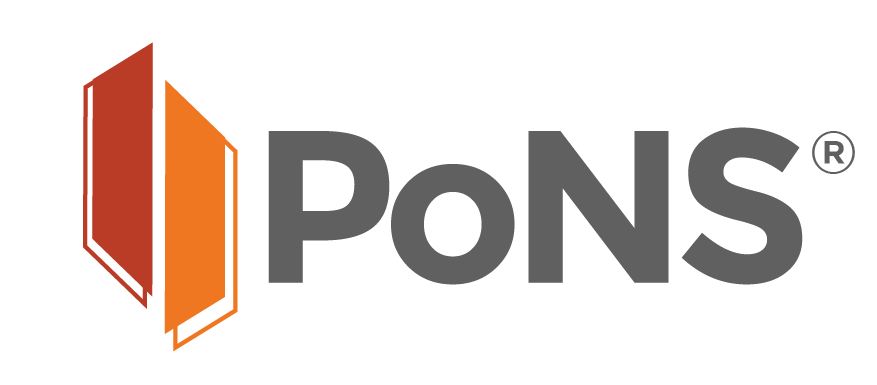Company Spotlights its Appreciation to Physical Therapists Trained in its Innovative PoNS Therapy™ in Honor of National Physical Therapy Month
NEWTOWN, Pa., Oct. 13, 2022 (GLOBE NEWSWIRE) – National Physical Therapy Month (NPTM) comes every October, but this one is particularly meaningful to Helius Medical Technologies (NASDAQ: HSDT): This year, the company has trained a large and growing community of physical therapists to use its innovative Portable Neuromodulation Stimulator (PoNS®) device to help improve the gait of people with multiple sclerosis (MS). And given the critical role physical therapists play in PoNS Therapy™, Helius is making its free, online training available to even more of them nationwide.
This effort – which gives physical therapists the opportunity to sign up for training by visiting the Helius booth at the American Congress of Rehabilitation Medicine Conference in November and the American Physical Therapy Association (APTA) Combined Sections Meeting in February 2023 – has a single goal: to give more individuals with MS the opportunity to better live the promise of APTA’s theme for NPTM’s 30th anniversary: “Choose to Move.”
The theme spotlights physical therapists’ unique value as movement experts – a role that makes them vital to the success of PoNS Therapy. PoNS is an innovative device that helps individuals with MS improve their gait by stimulating the surface of the tongue to activate new pathways to the brain. During the first two weeks of therapy, trained physical therapists work in-person with users, guiding them through therapeutic exercises designed to maximize the effectiveness of the device; for the following 12 weeks users continue the therapy at home, under their PT’s weekly guidance.
In a clinical trial, PoNS plus targeted physical therapy helped all the participants enrolled in the active treatment group achieve at least a 4-point improvement in their Dynamic Gait Index (DGI) scores.1 A second study suggests this combination can enhance motor performance and showed a statistically significant improvement in balance.2 Real-world treatment outcomes found that 58.3% of individuals with MS and gait deficit achieved at least a 4-point improvement in their functional gait assessment (FGA).3
“How well we can walk has a huge impact on how well we live our lives. And for people with MS, who often have to deal with so many other complications, it’s particularly top-of-mind,” said Antonella Favit-Van Pelt, M.D., Ph.D., Helius’ Chief Medical Officer. “When talking to their doctor, about 85% of them name gait deficit as their primary concern. Within 15 years of an MS diagnosis up to 50% of them will require a walking aid, and 10% will be wheelchair-dependent.”
The PoNS device is worn around the neck, with a mouthpiece that rests lightly on the front of the tongue. It works by delivering electrical impulses through nerve fibers on the tongue, stimulating the flow of millions of neural impulses to the brain structures that control gait. This creates a cascade of activity in the brain that, when combined with physical activity, provides a neuromodulatory effect, resulting in neuroplastic changes – essentially “rewiring” parts of the brain to improve gait. This video illustrates how PoNS works: https://youtu.be/9WhlnXcucmE
Physical therapists who complete Helius’s training learn how to complement use of the PoNS device with physical activity in order to elicit gait improvement. And while a significant number of them across multiple states already have been trained, they’re only the first wave. Additional physical therapists currently are going through training, and new ones are signing up. In doing so they’re exemplifying the spirit of both National Physical Therapy Month and “Choose to Move.”
Physical therapists whose clients include individuals with MS who are experiencing gait issues can sign up for PoNS Therapy training here: https://www.ponstherapy.com/training/
About Helius Medical Technologies, Inc.
Helius Medical Technologies is a leading neurotech company in the medical device field focused on neurologic deficits using non-implantable platform technologies that amplify the brain’s ability to compensate and promote neuroplasticity, improving the lives of people dealing with neurologic diseases. The Company’s first commercial product is the Portable Neuromodulation Stimulator (PoNS®). For more information, visit www.heliusmedical.com.
About the PoNS Device and PoNS Therapy
The Portable Neuromodulation Stimulator (PoNS) is an innovative non-surgical medical device, inclusive of a controller and mouthpiece, which delivers electrical stimulation to the surface of the tongue to improve balance and gait. The PoNS device is indicated for use in the United States as a short-term treatment of gait deficit due to mild-to-moderate symptoms from multiple sclerosis (“MS”) and is to be used as an adjunct to a supervised therapeutic exercise program in patients 22 years of age and over by prescription only. Helius is advancing PoNS post-approval research in MS through a recently launched Therapeutic Experience Program (TEP) designed to partner with neurologists and neurorehabilitation therapists at 10-12 US centers of excellence, who express an interest in becoming “early adopters” of PoNS therapy. For more information visit www.ponstherapy.com.
About the American Physical Therapy Association
The American Physical Therapy Association represents 100,000 physical therapists, physical therapist assistants, and students of physical therapy nationwide. Visit www.apta.org to learn more.
Contact
Patty Caballero
862.216.7523
[email protected]
1 Tyler ME, Kaczmarek KA, Rust KL, Subbotin AM, Skinner KL, Danilov YP. Non-invasive neuromodulation to improve gait in chronic multiple sclerosis: a randomized double blind controlled pilot trial. J Neuroeng Rehabil, 2014;11:79
2 Leonard G, Lapierre Y, Chen J-K, Wardini R, Crane J, Ptito A. Noninvasive tongue stimulation combined with intensive cognitive and physical rehabilitation induces neuroplastic changes in patients with multiple sclerosis: a multimodal neuroimaging study. Mult Scler J Exp Transl Clin 2017;3(1):2055217317690561
3 Helius Medical, Inc. Portable Neuromodulation Stimulator (PoNS) Real-World Evidence Study, August 2, 2020
